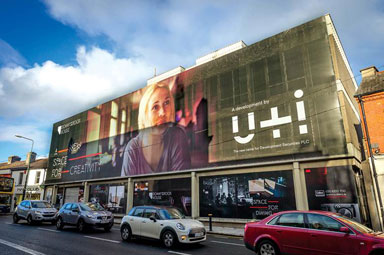This week saw the seventh change in chief executive of a listed property company since the start of the pandemic. Regeneration specialist U and I Group (UAI) parted ways with Matthew Weiner, who had held the role for six years and been at the company for more than 20, and replaced him with chief development officer Richard Upton.
UAI has been hit harder than most during the pandemic. The £90m market-cap company saw its share price plummet 65.1% in 2020 (the third worst of all property companies beaten only by shopping centre landlords Hammerson and Capital & Regional), and its net asset value (NAV) fall 26%.
Upton has said he will undertake a 100-day review of the business’s strategy. Some pretty drastic changes are needed to turnaround the fortunes of the group, so what can we expect?
Well, first of all, Upton is likely to bring energy and passion to the role. He was founder and chief executive of specialist regeneration developer Cathedral Group before he sold the business to Development Securities (now UAI) in 2014 and oversaw the rebranding of the company to U and I Group.
I have struggled to understand the name change, but it was clear that Upton wanted to signal the start of a new edgier company. Cathedral Group had a reputation for being a disrupter in the property development game and had become one of the most creative and innovative developers in London.
His first course of action as chief executive is to simplify the group’s portfolio. It effectively has two arms currently – development and investment portfolios. Both have been losing value during the pandemic, with the development side losing £25m in the six months to September 2020 and the investment portfolio £10.3m (or 7.8%) – contributing to a half-year loss of £50.2m.
Upton has said the group will now focus purely on development. It will sell all non-core investment assets – targeting £50m of proceeds this financial year and a further £80m next year – and only keep assets with regeneration potential.
The development projects, which it should be noted have a gross development value of £10.5bn, will be assessed against a new matrix of time, value and risk and be re-categorised into core and non-core.
Core regeneration projects include the huge Mayfield scheme in Manchester, which will deliver 1,500 homes, 2.3m sq ft of office space and 13-acres of public realm, and central London sites Landmark Court, 8 Albert Embankment and Morden Wharf. Non-core sites will be disposed of over the next two years as they reach an appropriate monetisation milestone (such as gaining planning permission).
It will look to partner with third-party capital to progress the regeneration projects and take development management fees and well as development profits.
COVID has been particularly hard on UAI and Upton has a huge task on his hands in turning round its fortunes. Taking the group back to its roots in regeneration, where risk and reward are far greater, is the kind of move the group needs to rebuild investor interest in the company.
